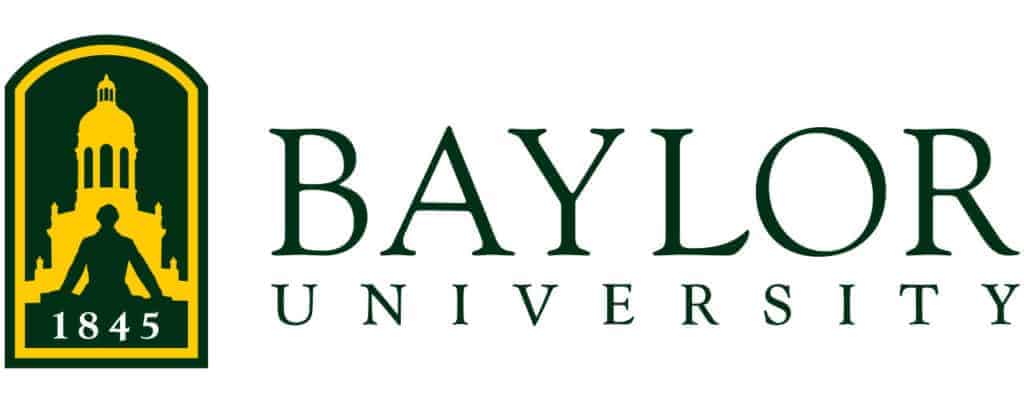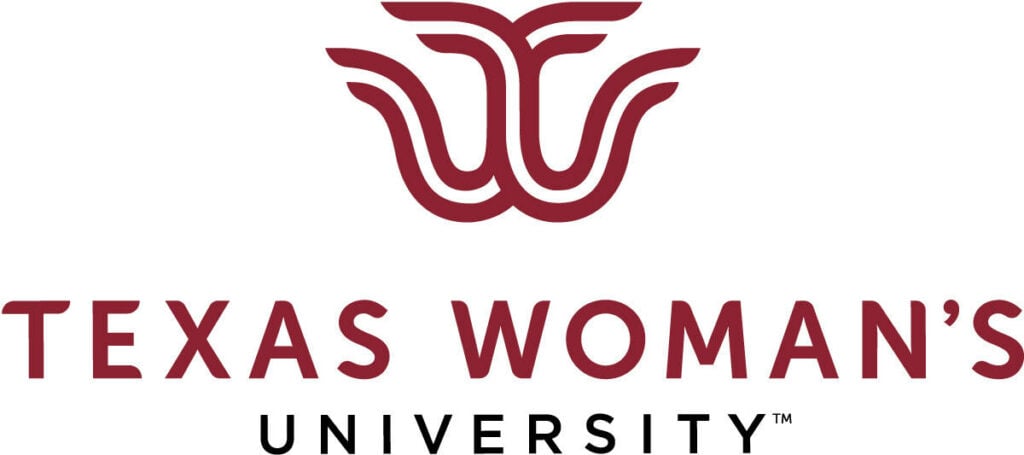We all know Texas is a vast state with a rich history. From the Alamo, rich oil fields and immense cattle ranches, the Texas Rangers, NASA (“Houston, we have a problem” sound familiar?) Texas is a state like no other.
Texas ranks second in size only to Alaska and California, and it’s unsurprising then that Texas ranks #3 (just behind California and New York) for having the most four-year universities and two-year colleges. 135 and 83, respectively. In 2021-2022, more than 1.6 students attend school at one of those Texas colleges or universities.
Since its founding in 1845, Texas was the 28th state to join the union, this state has grown from its original populace of 35,000 to the estimated 30,029,572 today.
A Really Brief History of Online Education
The history of distance education in the U.S. dates to the 19th century with the development of the U.S. Postal Service that led to the early beginnings of correspondence schools offering courses. It was cumbersome, with professors sending students instructional materials and exams. Students would study, complete exams, and mail them back to the teacher.
In the mid-20th century, the University of Houston offered the first college courses for credit on the country’s first public television station, KUHT. As computers became more mainstream and the Internet became public, an opportunity existed to offer online courses and degrees. The University of Phoenix was the first to offer fully-online studies in 1989.
Higher Education in Texas
The first Texas college to open was Texas University (now Southwestern) which began in 1840 and was followed by Baylor University with its charter in 1845.
With its vast size and population, it’s little wonder that Texas has 135 and 83 universities and colleges, respectively, with more than 1.6 students attending school at one of those Texas colleges or universities.
The average tuition rate for Texas residents is $6,663 and for non-residents, $17,514. However, with distance education and online degree programs, many Texas schools may charge non-residents the same tuition as in-state residents.
Accreditation
During the late 19th century, an accreditation system began in the U.S. for colleges and universities to demonstrate high academic and educational standards. This was done to separate them from schools that provided sub-standard education.
The educational accreditation system exists today and for many of the same reasons. A regional or national non-profit, Department of Education-approved agencies, can accredit higher education degrees. Here’s a list of some of those institutional accrediting agencies:
- Higher Learning Commission (HLC)
- Middle States Commission on Higher Education (MSCHE)
- New England Commission of Higher Education (NECHE)
- Northwest Commission on Colleges and Universities (NWCCU)
- Southern Association of Colleges and Schools
- Commission on Colleges (SACSCOC)
Degree programs that may require licensure, may hold specific accreditation from organizations such as:
- Commission on Collegiate Nursing Education (CCNE)
- Accreditation Board for Engineering and Technology, Inc. (ABET)
- Council for Higher Education Accreditation (CHEA)
The schools on this list are all programmatic, regional or national accreditation.
Higher Education in Texas By the Numbers
Texas ranks #3 (just behind California and New York) for having the most four-year universities and two-year colleges (135 and 83, respectively.) In 2021-2022, nearly 1.6 students attended school at one of those Texas colleges or universities.
| Texas Colleges and Universities | Enrollment |
| Undergraduate | 1,385,460 |
| Graduate | 208,166 |
| Full-Time | 846,668 |
| Part-Time | 746,958 |
| Men | 656,390 |
| Women | 937,236 |
The Lone Star State has one of the best higher education systems in the nation, if not globally, with its public university systems, liberal arts colleges, and some of the most recognized private research schools. The most recent figures available show that Texas funnels an impressive $27.1 billion to support higher education.
The state’s reputation for notable higher education institutions also drives schools to extend their curriculum beyond brick-and-mortar buildings.
During the COVID Pandemic, we saw that colleges and universities pivot from on-campus to online instruction to keep students on their academic schedule. Schools have found the online option helps expand their enrollment figures and geographic reach and more degrees will be offered online.
As an online student and depending on your school, you might qualify for in-state tuition even if you live outside of the state. Be sure to discuss this option with an admission advisor to determine if you qualify for in-state tuition as a distant student.
Online/Distance Learning in Texas By the Numbers
| Total | Undergraduate | Graduate | |
| Enrollment | 1,593,626 | 1,385,460 | 208,166 |
| Online Study Only | 424,158 | 347,453 | 76,705 |
| Some Online Courses | 519,847 | 487,558 | 32,289 |
An online Texas education offers several benefits whether you’re a recent high school graduate, a working professional wanting to advance your career, or looking to earn a graduate degree, you’ll probably find a degree program in Texas that will meet your goals.
- Flexibility and Scheduling Convenience – it’s hard to beat the convenience of an online Texas education. Wherever you can log onto the Internet, your workplace or your home, you can set your own study time with online courses.
- If your degree requires clinical or practical experience (such as nursing), you’ll probably be able to complete the requirement under the supervision of an approved preceptor in local facilities, agencies, or centers, depending on your major.
- Courses – online degrees provide the same classes developed and taught by the same faculty in the on-campus settings. While coursework is conveniently online, depending on your major, you may be required to participate in Zoom or other interactive video platforms for classes at specific times.
- Some programs might require intensives that necessitate traveling to a Texas campus to interact with professors, students, and/or skills training. Intensives, or immersive, are typically held on weekends with plenty of advanced notice of dates.
- Cost – You’ll save money earning your online at a Texas school. Frequently, online degrees charge non-Texas residents the same tuition rate as in-state students. Additionally, you’ll save money on transportation, housing, and meal costs. The biggest benefit is you can continue to work and earn a quality degree simultaneously.
What Types of Degrees Can I Earn Online in Texas?
You name it, and chances are good, you’ll find an accredited Texas school that offers an online degree in that field.
Texas colleges and universities offer numerous online career degree options, and you’re sure to find a program that fits you. Similar to on-campus degrees, Texas online schools will accept transfer credits from accredited schools.
Several Texas schools offer bridge programs in careers, such as nursing, that allow you to simultaneously earn your undergraduate or graduate degree. For instance, if you’re a Registered Nurse and want to make a BSN or MSN, you may also enroll in a 4+1 program.
Depending on your school of choice, there is usually a wide range of possibilities or career paths’ for the student.
Most Texas colleges and universities have dedicated distance education departments that work with academic departments to offer accredited degrees in Nursing and Health Sciences, Business Administration, Accounting and Finance, Education, Computer Science, and Communication and Media degrees. Other online programs offered include visual and performing Arts, Humanities, and Engineering degrees.
Specialized Degrees
Online education allows you to expand your school search to any state in the union. If you’re looking for a special degree and one isn’t available to you locally, you’ll want to let your imagine go wild and explore programs in other states that fit your needs.
NC-SARA Reciprocal Agreements
A word of warning, though.
Not all online schools can accept students from any state. Look for an online program that is a member of the National Council for State Authorization Reciprocity Agreements (NC-SARA). This agreement “…expand(s) students’ access to educational opportunities and ensure more efficient, consistent, and effective regulation of distance education programs.) The college or university offering an online program should indicate on its website that it is an NC-SARA member.
Accreditation
During the late 19th century, an accreditation system began in the U.S. for colleges and universities to demonstrate high academic and educational standards. This was done to separate them from schools that provided sub-standard education.
The educational accreditation system still exists today and for many of the same reasons. A regional or national non-profit, Department of Education-approved agencies, can accredit higher education degrees. Here’s a list of some of those institutional accrediting agencies:
- Higher Learning Commission (HLC)
- Middle States Commission on Higher Education (MSCHE)
- New England Commission of Higher Education (NECHE)
- Northwest Commission on Colleges and Universities (NWCCU)
- Southern Association of Colleges and Schools
- Commission on Colleges (SACSCOC)
Degree programs that may require licensure, may hold specific accreditation from organizations such as:
- Commission on Collegiate Nursing Education (CCNE)
- Accreditation Board for Engineering and Technology, Inc. (ABET)
- Council for Higher Education Accreditation (CHEA)
The schools on this College Consensus list all hold accreditation
How Can I Save Money on an Online Degree in Texas?
They say everything’s bigger in Texas and education is no exception.
Online degree programs in Texas can offer a huge bang for your buck when it comes to paying for college. The best way to save money as an online student is by applying for scholarships. Texas offers a wealth of scholarships, state grants, and federal assistance opportunities.
Texas schools can offer scholarships to online students that may not be available from other states. Some scholarships are for Texas residents attending a specific college or university, but scholarships for out-of-state, online students are also available.
Scholarships can be merit-based or need-based. Some may require essays, letters of recommendation and require that you major in a specific field of study, be of a particular heritage or gender.
Wondering how to pay for your Texas college degree? Check out our list of the Top Texas Scholarships.
This table is just a snapshot of possibilities.
Texas Scholarship Examples
| Scholarship Name | Scholarship Amount | General Requirements/Eligibility |
| Nurse Corps Scholarship Program | Varied | Includes commitment to work in a Critical Shortage Facility |
| Jane Delano Student Nurse Scholarship | Unknown | American Red Cross volunteer or employee |
| Alliance for Women In Media, Austin Scholarship | $5,000 | Studying media or related field Attendance at an Austin university or college |
| Coca-Cola Scholars Foundation | $20,000 | Limited to 150 students Applications August-October 31 |
| Family, Career & Community Leaders of America, Texas Association | Varied | Must major in family and consumer sciences |
| Greater Than Gatsby Annual Scholarship | Varied | Major in art, communications, English, film, fine arts, journalism, multimedia, photography or visual arts |
| Fifth Year Accounting Student Scholarship Program | $5,000 | Must be Texas Resident |
| Ann Arnold Scholarship | $5,000 | Demonstrate financial need and majoring in broadcast journalism |
| Don’t Mess With Texas Scholarship Program | $5,000 | Texas high school seniors |
Accredited Texas colleges and universities will also award Federal Student Aid programs such as Pell Grants, loans, and departmental scholarships. You’ll be encouraged, in some cases required, to make an application for student aid through the Free Application for Federal Student Aid (FAFSA®). Having a FAFSA on file will make it easier for you to be considered for need-based scholarships, school or state grants.
Depending on the school, as an online student, you may qualify for in-state tuition even if you live outside of Texas. Online students attending Texas schools may also be eligible for a tuition break if they meet specific requirements.
Some regional Texas schools may also provide lower tuition rates to online students living in one of Texas’s bordering states of Oklahoma, Arizona, New Mexico, etc.
Employer Assistance
If you’re presently working, take advantage of possible assistance and see if your place of employment offers educational and financial assistance for employees attending school online. For example, if you work as a Registered Nurse in a health system and are pursuing a Bachelor of Science in Nursing, your employer may help pay tuition.
Employers realize that educational assistance can be a key benefit in recruitment or, for many employees, can foster loyalty and improve morale (especially if the degree relates to your work.) Tuition reimbursement or assistance is frequently included in benefits packages, especially if your degree will benefit your workplace.
Because you’re attending school online, attendance at work won’t suffer, which is a major selling point for employers.
Work/Life/Military Experience
Schools recognize that nontraditional students bring previous experience in a particular field that could count for academic credit. Military training can also be considered for academic credit. Be sure to talk with admissions about that possibility.
You can save money by receiving credit for coursework based on your experience.
What About Online Community Colleges in Texas?
Texas has community or two-year colleges offering online associate degrees that will transfer to a four-year college or university. If you’re a first-time student, you can save significant tuition dollars by completing your first two years of college at a two-year college. Additionally, you’ll also find these schools have lower tuition than the heftier tuition cost of four-year universities.
How does that help?
You can earn your first two years of university-required courses (English, history, and other prerequisites) and transfer those credits to your online program. That way, you’ll enter your online degree program as a junior and will only be responsible for two years of higher tuition.
Texas alone has a variety of two-year colleges with online options for less than half the cost of in-state tuition from a regional institution or state university. Tuition costs for online students at community colleges can be as low as $3,626 per year for in-state students and $5,997 for out-of-state students.
For the online student who wants to pursue a college degree, yet without the hefty tuition cost that four-year universities or institutions offer, then choosing a community college may be the best option. Texas alone has a variety of two-year colleges that offer the online option for less than half the cost of in-state tuition from a regional institution or State University. Tuition costs for online students at community colleges can be as low as $2000 per academic year.
One college that provides an affordable tuition to online students is Central Texas College, located in Killeen, TX. The school offers over thirty online degree programs and more than twenty online certificates to prospective online students. The programs that are provided through the college are both the Associates of Arts and Associates of Applied Science degrees. Another option for online students is also the Palo Alto College in San Antonio. Located about two hours from the Capital, the college offers a number of programs, ranging from Business Administration, Criminal Justice, Economics, and Education. Both schools have an affordable tuition rate, for either Texas residents or out-of-state students. In addition to a vast number of programs, there are some community colleges that may have more than one campus. Paris Junior College, located in Paris, TX, also has centers in Greenville and Sulphur Springs.
Best Online Texas Colleges and Universities
The Best Online Colleges & Universities in Texas category is limited to schools in Texas that offer online degree programs at any level. These programs are listed alphabetically rather than ranked.
Baylor University

Baylor University is one of the nation’s most recognizable private, 4-year universities rooted in Christian values (established in 1845 by the Union Baptist Association). The oldest university in Texas, the beautiful campus is located on the Brazos River. With over 125 academic majors, Baylor may have a master’s or Ph.D. program to meet your professional goals from business to nursing. While you may not need to go to the Baylor campus, you can take a virtual tour as the school is featured in the Amazon Prime TV, Season 2 production “The College Tour,” currently streaming on different platforms.
Saint Edward’s University

St. Edwards University is a moderately sized, private Catholic school established in 1877. Offering a liberal arts education, St. Edwards offers limited online program options with two master’s degrees in the business field. The school has a great reputation for producing a high number of Fulbright Scholars for a school of its size. St. Edwards has an active global presence with students experiencing educational opportunities in Africa, Europe, and Central Asia. Located in Austin, the campus is conveniently located to the vibrant arts scene in music, theatre, and more.
Southern Methodist University

Southern Methodist University sits on over 225 acres in a section of Dallas and has a student enrollment of 12,000 in one of its over 100 majors offered through nine colleges. SMU offers bachelor’s degrees, post-baccalaureate certificates, master’s degrees, and doctorates. SMU’s online program focuses on professionals and presently has four degrees in specializations in engineering, business, and interdisciplinary studies. The campus is home to the George W Bush Presidential Library and SMU alumni includes former First Lady Laura Bush, numerous politicians, professional athletes, and film and theatre artists.
Texas A&M University at College Station

Texas A&M University sits on a whopping 5,200 acres in College Station (located in the Houston-Dallas-Austin triangle), boasts over 59,000 students, and is steeped in traditions. Long renowned for its engineering and agricultural expertise, Texas A&M also offers an impressive catalog of undergraduate and graduate online academic departments providing an array of degree specialties. Even as a distance education student, you’ll benefit from the numerous student support services, including veterans, disability, counseling and psychological support. You’ll be able to call yourself an “Aggie” and be part of all the long-standing traditions.
Texas Christian University

This private, four-year school has a student population of over 11,000. TCU was established in 1873 in Fort Worth and then moved three times before ending up back where it began, and TCU was one of the first co-ed schools in the Southwest. Offering over 100 fields of study, TCU is known for its programs in Nursing and Healthcare, Business, and Communications fields. While online degree programs are limited, TCU does offer numerous online courses, and the school’s study abroad programs are extremely popular.
Texas Tech University

Since 1923, Lubbock, TX has been home to Texas Tech University which features stunning Spanish Renaissance architecture enjoyed by the nearly 32,000 students. When it opened, TTU had four schools in Agriculture, Engineering, Home Economics and Liberal Arts. Today, TTU has 12 colleges and schools, offering 150 undergraduate degrees, 100 graduate degrees, and 50 doctoral degrees with more than 40 online and blended degree programs. While Business and Engineering are the largest programs at TTU, the university has highly regarded programs in Psychology, Healthcare Management, Teacher Education, Art & Design, Music and Theatre.
Texas Woman’s University

Although the name may be startling in the 21st century, Texas Woman’s University (established 1901) has admitted men since 1972 to its Denton, TX campus. TWU is the nation’s first woman-focused public university system. The school has an impressive roster of online, undergraduate, graduate, and doctoral programs, with themes popular majors being in healthcare, business, and psychology. TWU has an impressive roster of graduates, including Sandra Day O’Connor, the first female SCOTUS justice, former Texas Governor Ann Richards, and Olympic star gymnast Simone Biles.
University of Texas at Arlington

Established in 1895, UT at Arlington is now Texas’s second-largest university with an impressive 250,000 alumni roster. A leader in research in multiple disciplines, the university provides online, accelerated bachelor, master, and Ph.D. degrees in the most current areas of study in various specialties in nursing, education, public health, and urban and public affairs. The university attracts the best experts in their field who serve as faculty members and who extend their expertise to UT-Arlington’s online students.
University of Texas at Austin

Not only is Austin the home of the Texas state capital, but it’s proudly home to the University of Texas at Austin, the state system’s flagship school of over 52,000 students. Offering online bachelor, master, and doctoral degree programs, you can also enroll in professional certifications and non-degree courses. Online programs mirror the on-campus programs in curriculum, faculty, and quality, regardless of your major. UT-A is known for its commitment to technology and robust health research. The only thing you’ll miss attending online is exploring the vibrant city of Austin with its cultural, historical, and recreational activities.
University of North Texas

UNT has a single purpose, “Our students will be the innovative leaders of tomorrow.” Since its opening in 1890 on the North Texas prairie in Denton, TX, the university has been working toward and achieving that goal. Recognized as a Tier One public research university, UNT has over 244 undergraduate and graduate degrees for its over 44,000 enrolled students. The school has a solid reputation for online learning with 89 online program options, featuring over 1600 courses and 80 with 128,083 online students.
Related Rankings:
Best Online Colleges & Universities
